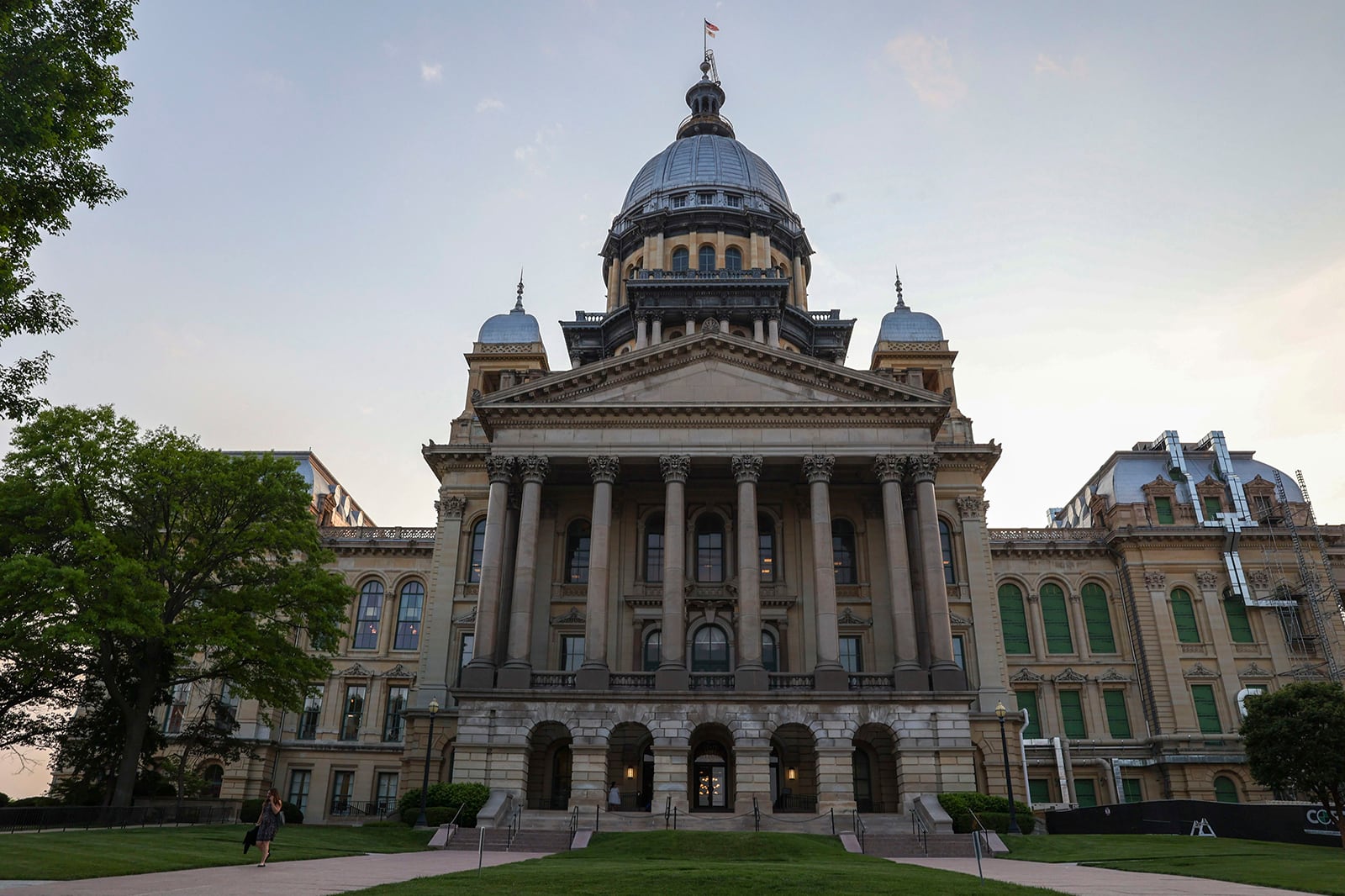Sign up for Chalkbeat Chicago’s free daily newsletter to keep up with the latest education news.
A moratorium on closing any Chicago public schools until 2027, extra funding for schools supporting migrant students, and the creation of a new early childhood department. These are some of the top issues Illinois lawmakers in Springfield are focused on as the end of the legislative session looms.
The Illinois General Assembly is scheduled to end its spring session on May 24, leaving a few weeks to pass bills and send them to Gov. J.B. Pritzker’s desk for final approval.
At the beginning of session, one of the most pressing issues for lawmakers was to approve an electoral map and ethics provisions for Chicago’s first school board elections, which they punted last year. With an April 1 deadline fast approaching, lawmakers settled the issue early in March. But that wasn’t the only issue before lawmakers that could impact the future of Chicago Public Schools.
Here are some education bills we’re continuing to follow.
Bills moving quickly through the legislature
Moratorium on Chicago school closures until 2027: House Bill 303 was initially filed to prevent the Chicago Board of Education from making any changes to selective enrollment schools until 2027 when the board will be fully elected. The bill is a direct response to a resolution passed by the current school board, which is appointed by the mayor, that calls for a new strategic plan that would invest in neighborhood schools and move away from school choice. The latest change to the bill included a closure moratorium on all Chicago schools until 2027. The bill is currently in the Senate’s executive committee.
Early Childhood Department: Illinois is currently in the process of merging early childhood education programs currently housed under the state’s Department of Human Services, Illinois State Board of Education, and the state’s Department of Children and Family Services. Pritzker unveiled the plan last October. He said the current system is an “impossible bureaucracy” for parents and providers to navigate and hopes that one department will make it easier. Senate Bill 1, which would create the new department, has passed the Senate and is currently in the House.
Bills with an uncertain future
State license for Montessori teachers: Illinois lawmakers are trying to figure out ways to deal with the current teacher shortage. One proposal, Senate Bill 2689, would make it easier for Montessori-trained educators to teach in public schools by creating the Montessori Educator Licensure. Teachers are eligible if they have graduated from a college or university with a bachelor’s degree, received a credential from an institution accredited by the Montessori Council for Teacher Education, the American Montessori Society, or the Association Montessori International, and completed state licensure testing. The Senate’s proposal, which passed, is currently in the House’s Rules Committee.
Police in Chicago Public Schools: The Chicago Board of Education voted in February on a measure to remove Chicago Police Department officers from schools. Currently, 57 officers are spread across 39 high schools. Some community leaders rallied against the board’s decision and said they wanted to keep their schools’ police officers, often referred to as school resource officers, or SROs. House Bill 5008, would allow Local School Councils to contract directly with the Chicago Police Department for school resource officers. The bill is currently in the House’s Rules Committee.
What we’re watching for in a final budget
Several bills could provide additional money to early childhood education, K-12 schools, and higher education institutions. The General Assembly must approve a budget before the end of the session. Here’s what’s on the table for school funding:
More funding for K-12 schools: Illinois education advocates are currently pushing the General Assembly to put $550 million more into the evidence-based funding formula that provides funding to K-12 schools. The formula distributes money to school districts based on the enrollment numbers of students from low-income students, English learners, and students with disabilities.
Since the evidence-based funding formula was established in 2017, the legislature has been adding $350 million more a year. But advocates say that it will take larger annual increases to fully fund schools by 2027.
Grants for schools enrolling migrant students: Since the spring of 2022, CPS and suburban school districts have enrolled students who have migrated from countries around the globe facing war and economic insecurity, such as Ukraine, Russia, and Venezuela. Many schools lack bilingual resources and staff to support these students.
Rep. Fred Crespo, a Democrat representing suburbs northwest of Chicago, proposed a pair of bills that would create a New Arrivals Grant to be distributed through the Illinois State Board of Education. An earlier version of the bill proposed allocating $35 million, but lawmakers have increased that number to $188 million.
Illinois child tax credit: During the pandemic, Congress expanded the child tax credit, providing families with monthly payments of between $250 and $300 per child, depending on their age. The program reduced child poverty rates temporarily, but it ended in 2021. Now, Illinois lawmakers — along with other state legislatures, such as Colorado — are proposing a state child tax credit.
In Illinois, families could receive up to $300 per child for children under the age of 17. Married couples who make less than $75,000 and single people who make less than $50,000 would be eligible.
Samantha Smylie is the state education reporter for Chalkbeat Chicago covering school districts across the state, legislation, special education and the state board of education. Contact Samantha at ssmylie@chalkbeat.org.







